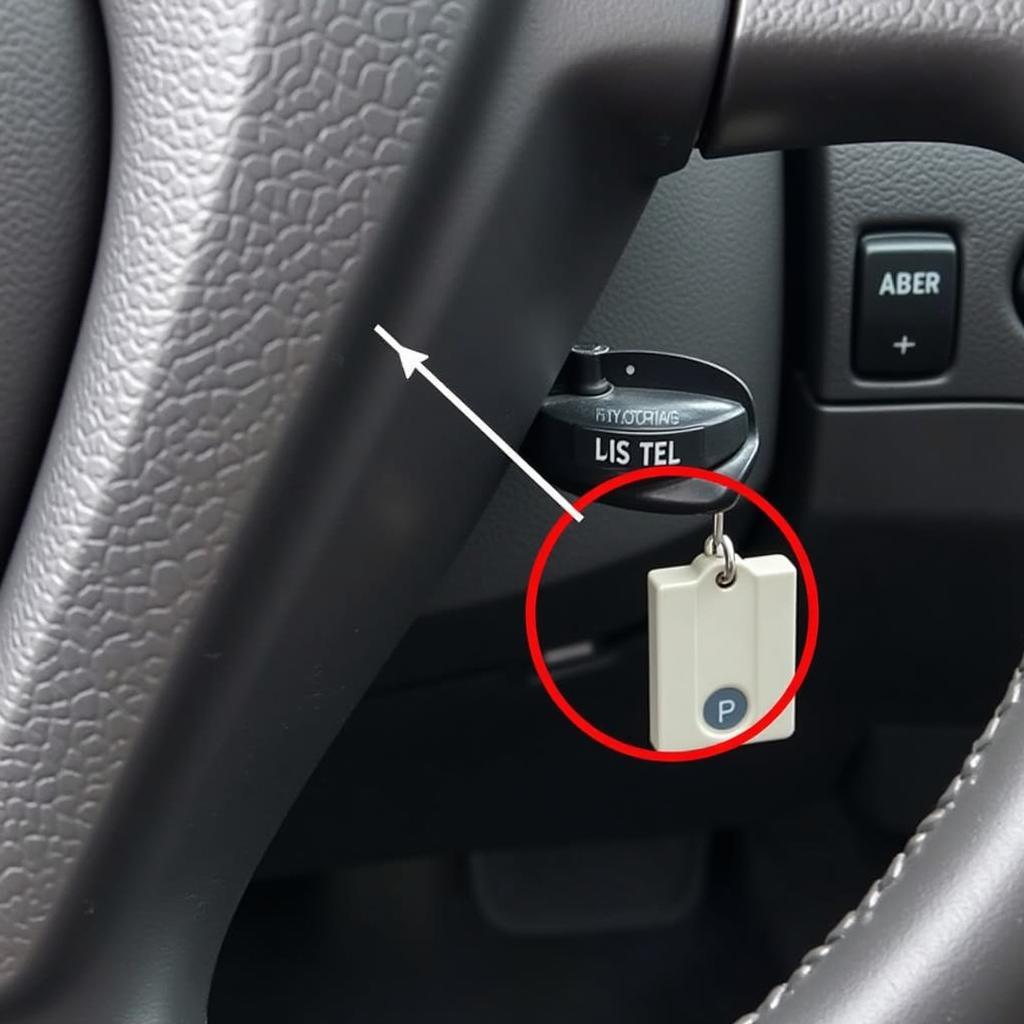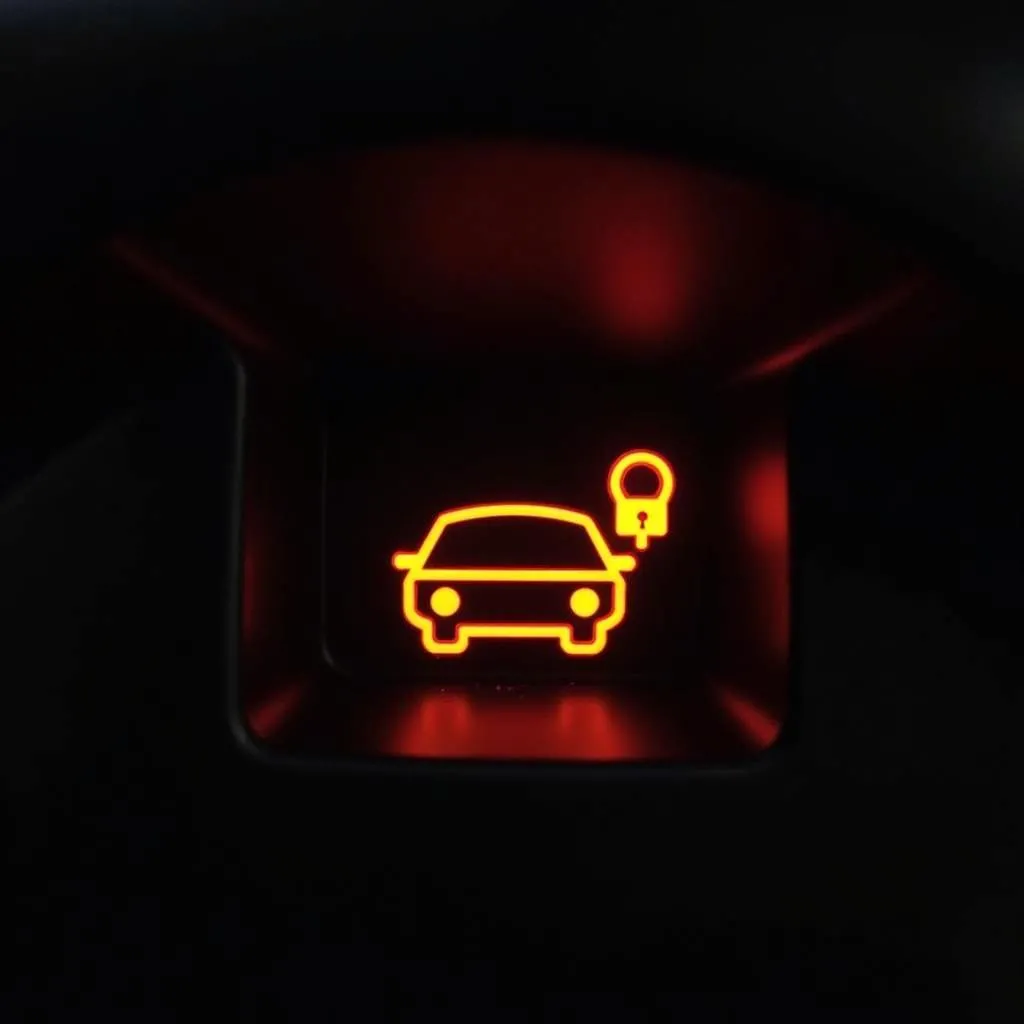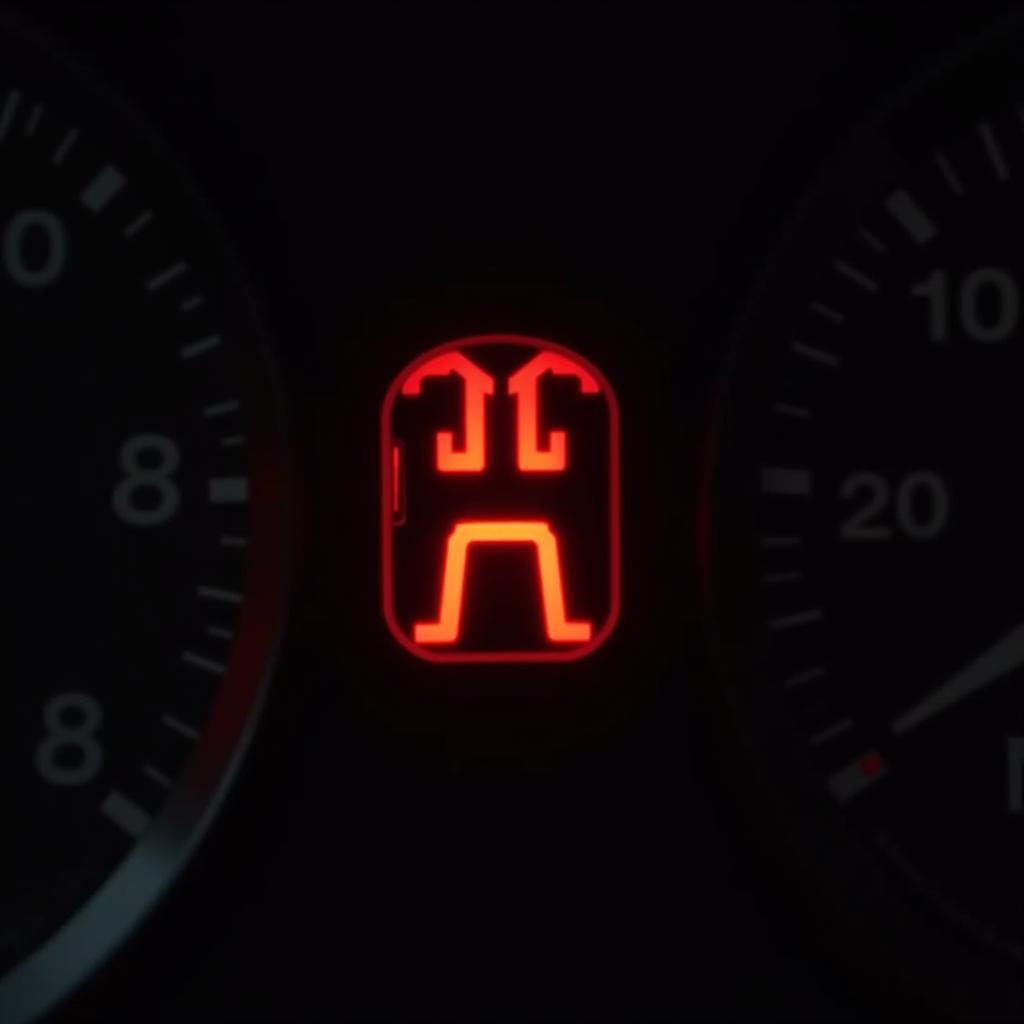The dreaded parking brake warning light illuminating your Toyota Prius dashboard can be a source of anxiety. But don’t panic! This article will guide you through the potential causes of a parking brake warning in your Toyota Prius and offer practical solutions, ranging from simple DIY fixes to more advanced diagnostic techniques. We’ll cover everything from low brake fluid to faulty sensors and even remote software solutions.
Understanding the Parking Brake Warning Light
The parking brake warning light is designed to alert you to a few different potential problems. It’s not always as simple as the parking brake being engaged. It can also indicate low brake fluid, a malfunctioning parking brake switch, or issues within the electronic braking system. Understanding these possibilities is the first step to effectively troubleshooting the issue.
Common Causes of a Parking Brake Warning in a Toyota Prius
Several factors can trigger the parking brake warning light in a Toyota Prius. Let’s break down the most common culprits:
- Engaged Parking Brake: This may seem obvious, but sometimes the simplest explanation is the correct one. Double-check to make sure the parking brake lever is fully released.
- Low Brake Fluid: Low brake fluid can trigger the warning light. Check your brake fluid reservoir and top it off if necessary. However, consistently low brake fluid could signify a leak, which requires professional attention.
- Faulty Parking Brake Switch: The switch that detects the parking brake position can malfunction, sending a false signal to the dashboard. This will require testing and potentially replacement.
- Worn Brake Pads: While not always the direct cause of the parking brake warning, worn brake pads can contribute to brake system issues and trigger other warning lights.
- Issues with the Electronic Brake System: Modern Priuses utilize sophisticated electronic braking systems. Problems within this system, such as a faulty actuator or sensor, can illuminate the parking brake warning.
 Toyota Prius Parking Brake Lever
Toyota Prius Parking Brake Lever
Diagnosing the Problem
Now that we’ve outlined the potential causes, let’s discuss how to diagnose the specific problem in your Prius:
- Check the Obvious: Start by ensuring the parking brake is fully disengaged. It’s easy to overlook this simple step.
- Inspect Brake Fluid: Check the brake fluid level in the reservoir. If it’s low, top it off. If it continues to drop, suspect a leak and seek professional help.
- Listen for Unusual Noises: While driving, listen for any grinding or scraping sounds coming from the brakes. This could indicate worn brake pads or other mechanical issues.
- Test the Parking Brake Switch: This requires some mechanical knowledge. You can use a multimeter to test the switch’s continuity. If the switch is faulty, it will need to be replaced.
Remote Diagnostics and Software Solutions
In some cases, the parking brake warning might be caused by a software glitch within the car’s electronic braking system. This is where remote diagnostics and software updates come into play. Specialized services can connect to your vehicle remotely, diagnose the issue, and even install software patches to resolve the problem. This can often save time and money compared to traditional diagnostic methods.
“Remote diagnostics have revolutionized how we approach vehicle repair,” says John Smith, Senior Automotive Electrical Engineer at Advanced Auto Solutions. “We can often pinpoint and fix software-related issues without the customer ever having to visit a repair shop.”
What if the Problem Persists?
If you’ve tried the above steps and the parking brake warning light persists, it’s crucial to consult a qualified mechanic or Toyota dealership. They have the specialized tools and expertise to diagnose and repair more complex issues within the electronic braking system.
Conclusion
A parking brake warning in your Toyota Prius can stem from several issues, ranging from a simple disengaged parking brake to more complex electronic problems. By following the steps outlined in this article, you can often pinpoint the cause and potentially resolve the issue yourself. However, don’t hesitate to seek professional help if the problem persists or if you’re uncomfortable working on your vehicle’s braking system. Remember, a properly functioning brake system is critical for your safety and the safety of others on the road.
FAQ
- Can I drive my Prius with the parking brake warning light on? It’s not recommended. While you might be able to drive, it could indicate a serious problem that requires immediate attention.
- How much does it cost to replace a parking brake switch? The cost varies depending on the model and labor rates, but it’s typically a relatively inexpensive repair.
- How often should I check my brake fluid? It’s good practice to check your brake fluid level at least once a month.
- Can remote diagnostics fix all parking brake warning issues? No, remote diagnostics are primarily effective for software-related problems. Mechanical issues still require hands-on repair.
- Is it safe to top off brake fluid myself? Yes, as long as you use the correct type of brake fluid specified in your owner’s manual.
- What are the symptoms of a faulty parking brake cable? A sticking parking brake, difficulty releasing the parking brake, or a dragging sensation while driving can indicate a faulty parking brake cable.
- Can a low car battery cause the parking brake warning light? While less common, a severely depleted battery can sometimes cause erratic behavior in electronic systems, including the parking brake warning light. “Always consider the battery’s condition when diagnosing electrical issues,” advises Sarah Jones, Lead Technician at PriusCare Automotive.


